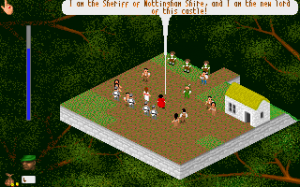FOR: If you have a primitive zero-sum mentality then you assume growing affluence for the rich must somehow be causing the immobility of the poor, but, in reality, the two sets of problems are different, and it does no good to lump them together and call them “inequality.”
AGAINST: Interesting how that doesn’t of Americas population went from owning 50% of the total wealth to 80% over the last 60 years. The poor may have gotten a better minimum wage but compared to the total economy, minimum wages is a drop in the ocean. Looking at salaries as independant entities instead of relative to each other is not only ignorant – it is also amazingly bad science.
Some say that the poor should “work harder” but 40 hours work a week at Walmart still entitles you to welfare food coupons because you earn so little. So how the would anyone work more than that and still have the time to gain more skills so you can get a better paid job? Not to mention a family or whatever is in your life?
FOR: The economy isn’t a zero-sum game and there’s absolutely no reason to believe that it is. You might want to confiscate the wealth of the 1% (or the 5% or whatever percentage they make up), but there is no reason to believe that that would *in itself* improve social outcomes for the others or for the least well-off.
It’s easier to make money once you have some, and/or have the skill sets and elite networks that help you make money. Those processes feed into each other. But that doesn’t mean that anybody’s corporate bonus makes teenagers drop out of high-school, or that lack of marketable skills is in any way *caused* by the wealth of others.
The distribution of total wealth in the US might have been changed, but that doesn’t mean money has changed hands. The more likely explnation is that it’s been created in industries and sectors whose owners have seen their wealth increase, while others who haven’t been similarly invested in profitable industries haven’t had any increases in wealth.
There simply isn’t a single social phenomenon called inequality.
Some economic inequality is the result of some people having made fortunes in ways that wouldn’t have been possible save for unjust trade regulations, tariffs, corporate subsidies, anti-competitive interventions, patents or other kinds of trade manipulation. (Or even just by being public contractors.) People should be angry about that and suspicious toward the fact that wealth tends to follow power as elites get entrenched, but that’s not a case for more market intervention – it’s a case for less.
AGAINST: The minimum wage is too low to live on. I’m pretty sure that the people actually working at walmart, their families and people they would like to buy stuff from would care that they dont have more money.
FOR: At any given time, there will be an infinite number of potential jobs or ways to spend to your time that *won’t* pay the bills, or that will even cost you money. Hobbies, over-staffed industries, obsolescent jobs (not many flint smiths out there), unproductive industries, where the salary will be very low. On the other end of the scale, there are some highly paid jobs that are very unpleasant, and a few that are both pleasant and well-paid. There are a tiny number of ways to make massive amounts of money and the competition in those fields is very though.
You can’t legislate that away — the salary someone can make doing a given job will vary from, say, minus 1000 dollars an hour to 10.000 or maybe a million dollars an hour. At any point on that scale you’ll find ways to spend your time, some of which will be able to attract willing buyers. Say the minumum wage is $7.24. Imposing this hard cut-off doesn’t do anything except shut down all the jobs that people were willing to pay between $0.01 and $7.24 an hour for.
Some authors get paid huge advances and make millions, others have to distribute their books for free online, and still others pay to have them self-published. Does that mean the book industry is broken?

